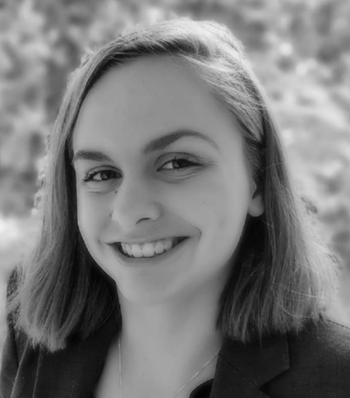Study praising group sex at SF ‘Horse Market’ follows higher ed trend to normalize illicit queer activity in name of inclusion
Campus Reform has followed the trend of American universities pushing nontraditional sexual behavior on students.
The study looks into the San Francisco Horse Market, a group sex event where participants are grouped into ‘mares’ and ‘stallions.’
Two academics in the United Kingdom have concluded that an organized group sex event in San Francisco provides “a protected space” for gay men, in a world where “queer culture” is being “commercialized” by heterosexuals.
This follows a trend of American universities pushing nontraditional sexual behavior, such as the University of North Carolina publishing an interactive map featuring historical campus sites for anonymous gay sex. In December, a Penn State professor encouraged his straight students to “watch gay and lesbian porn” to prove to students that “[w]e’re all, very much, easily bisexual.”
Lindsey Gaston and Laura Dixon, both affiliated with Liverpool John Moores University, investigated 15 testimonies of gay men in a July 28 study titled “Calling All Mares: Community, Identity, and Group Sex at the San Francisco Horse Market.”
All 15 men attended an event known at the San Francisco Horse Market, in which participants engage in organized group sex.
[RELATED: Exhibition features history of anonymous gay sex around this public university]
“Prior to the start of the event, participants select to be either a ‘mare’ (one that is penetrated/passive/bottom) or a ‘stallion’ (one that penetrates/active/top),” the study explains.
“[Mares] arrive at the event location known as the ‘marketplace’ an hour before the arrival of the Stallions,” the authors write. ”When the Mares arrive, they are asked to select either a white or red cotton hood. The hood acts as a blindfold, preventing the Mare from seeing any of the Stallions.”
A white cotton hood signifies that the “mare” wishes to use a condom, whereas a red hood signifies that he wishes to have “bareback,” or unprotected, sex. Volunteers known as “Stable Hands” help to ensure that this rule is observed.
The name of the event is derived from the German Fickstutenmarkt, roughly translating to “F*****g Mares Market.” Regional variations include UK “horse fairs” and Canadian “rough stock roundups.”
The testimonies used come from the event’s webpage, which also makes sure to note that while “It is not possible to change roles once the market begins!” anybody who “identifies” as a male can participate.
Some participants spoke of finding community at the event. “It’s not about ‘you and me,’ it’s about us. There is a community, a tribe, a bunch of people who share something,” one participant said of the group sex dynamic.
[RELATED: ANALYSIS: Trans activists tell straight, gay people they can’t have ‘genital preferences’]
Others told explicit tales of their sexual activity at the event. “I can hear the thumping of electronic dance music bouncing off the walls, yet my ears are more so drowned out by the sounds of sex: over 200 guys moaning, grunting, and coming in unison like one amorphous sexual being,” stated another participant.
The researchers concluded that the event was a positive thing for participants.
“As heterosexuals frequent gay spaces (bars, clubs, and Pride events) and traditional forms of queer culture (drag) are commercialized and consumed by non-queer audiences, the Horse Market provides a protected space only for gay men doing what makes them gay; participating, that is, in sex with other men,” researchers said.
This comes in the midst of a wave of universities promoting nontraditional sexual behavior. Campus Reform reported in December 2022 that the University of Vermont used student tuition dollars to host a “sex toy bingo night.”
Campus Reform contacted Gaston and Dixon for comment. This article will be updated accordingly.

